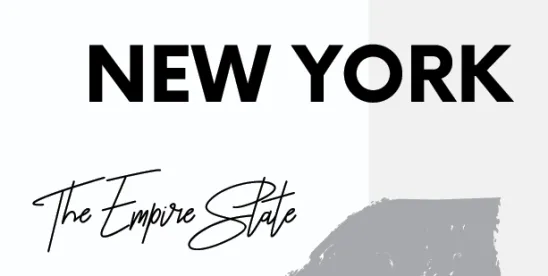As part of its ongoing climate policy and environmental justice efforts, the New York State Department of Environmental Conservation (NYSDEC) recently issued policy guidance intended to ensure that the agency’s permitting decisions (i) do not disproportionately burden disadvantaged communities, and (ii) prioritize reductions in greenhouse gas and co-pollutant emissions.
NYSDEC’s issuance of the new program policy — DEP 24-1 Permitting and Disadvantaged Communities — is the latest in a series of actions taken by the agency to implement the 2019 Climate Leadership and Community Protection Act (CLCPA). DEP 24-1 requires a disproportionate burden analysis to be completed where permit issuance is likely to impact a disadvantaged community. Based on the analysis results, NYSDEC could impose conditions on the permit.
New Policy for Assessing Potential Impacts to Disadvantaged Communities
Section 7(3) of the CLCPA requires NYSDEC to ensure its permitting decisions will not disproportionately impact disadvantaged communities. Disadvantaged communities, identified in 2023 by New York’s Climate Justice Working Group, are those that are burdened with negative public health effects, environmental pollution, impacts of climate change, and possess certain socioeconomic criteria, or comprise high concentrations of low- and moderate-income households. Section 7(2) of the CLCPA requires NYSDEC to determine whether permit issuance is inconsistent with, or would interfere with, the attainment of statewide greenhouse gas emissions limits. NYSDEC has not yet developed regulations implementing CLCPA Sections 7(3) or 7(2) and is instead relying on guidance such as DEP 24-1.
DEP 24-1 expansively applies to applications for certain environmental permits, including those governing air emissions and solid waste management, as well as pending incomplete renewal or modification applications. The policy also applies to projects involving the construction of energy production, generation, transmission, or storage facilities and permits for sources or activities that may directly or indirectly result in greenhouse gas or co-pollutant emissions.
For permit applications subject to the policy, NYSDEC will conduct a preliminary screening to determine whether the facility is in, or is likely to affect, a disadvantaged community. The “likely to affect” standard is met where a permit would increase greenhouse gases or co-pollutants in a disadvantaged community, even where the source is located outside of the disadvantaged community. In making this determination, NYSDEC is required to, at minimum, consider potential impacts within one-half mile of the facility.
Where NYSDEC determines that a facility is not in, or a permit will not likely affect, a disadvantaged community, the permit review may continue independent of DEP 24-1. Otherwise, a disproportionate burden analysis is required to identify existing burdens on the disadvantaged community and evaluates the impact of greenhouse gas and co-pollutant emissions associated with the permit on that community. As part of that analysis, a permit applicant may propose, or NYSDEC may impose, conditions on the permit to address any disproportionate burden. DEP 24-1 also requires a permit applicant to provide additional opportunities for public involvement, following the guidance in Commissioner Policy 29.
Ongoing Implementation of the CLCPA
NYSDEC’s issuance of DEP 24-1 is the latest in a series of actions the agency has taken to implement the CLCPA. On December 14, 2022, NYSDEC finalized Commissioner Policy 49 and Division of Air Resources 21 ("DAR 21") to guide analyses under CLCPA Section 7(2) regarding whether permit issuance would be inconsistent with or would interfere with the attainment of greenhouse gas emission limits. New York is also developing a Cap-and-Invest Program to establish a decreasing cap on greenhouse gas emissions and invest proceeds in the emission reduction program.
Regulations implementing the CLCPA are forthcoming, and New York’s Cumulative Impacts Bill goes into effect on December 30, 2024. The Cumulative Impacts Bill establishes even more rigorous requirements for evaluating the impacts of permit applications on disadvantaged communities.
Regulated entities in New York should carefully monitor the State’s continued implementation of the CLCPA, as new policy, guidance, and regulatory developments are occurring frequently. Permit applicants (including for renewal and modification applications) should provide a robust factual record to establish compliance with Sections 7(2) and 7(3) of the CLCPA, and help ensure timely and successful issuance of requested permits.






 />i
/>i

